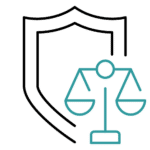How To Become A Tax Preparer

Super Mario Bros Movie: The Business of nostalgia
October 17, 2022Phone Numbers for Contacting the IRS & How to Reach a Live Person
April 6, 2023It’s easier than you think!
Tax pros work in a variety of industries as seasonal workers or year-round employees. They are reliable and organized with a dedicated interest in representing taxpayers. They complete tasks such as calculating, filing and signing reporting forms on behalf of taxpayers. Taxes are at the heart of every industry and financial decision. They are affected by and drive the economy. Because tax regulation is often formed by the decisions and opinions of tax professionals it is important to have qualified people. So…
Why become a tax pro?
1) Tax is unavoidable
Every individual and business has to account for their income and expenses whether or not they pay taxes. Up economy or down, most people and entities must file income or other reporting forms. Making taxes one of the few industries that are recession proof.
2) Tax is universal
Becoming a tax professional means you are not limited to one industry. Every industry is a tax industry!
3) Tax pros are needed, always
The world of tax is ever-changing and it is rarely made less complicated. Every time a tax law or regulation changes it simply increases the need for tax professionals.
4) Tax pros have a variety of employment opportunities:
A tax professional has options, not limitations, as to the scope of their career. There are possibilities in everything from the type of work you do, the tax niches you advise on, to the location of where you want to work.
5) The tax industry is diverse

Various job opportunities mean a variety of certifications and education levels. The tax industry doesn’t require an ivy league education to get started and very few barriers to entry. It doesn’t matter who you are or where you come from, there is a place for you as a tax professional.
The Hispanic market needs someone like you to lead and serve in the community. The possibilities are open! You can get started without a degree and you can get started with us.
Follow these four easy steps and you can be preparing tax returns in a little as 10 weeks
 1. Take A Highly Rated Beginner Tax Preparation Course
1. Take A Highly Rated Beginner Tax Preparation Course
The bes Comprehensive Tax Course starts with the basics, assuming no prior tax knowledge and only basic math skills. Register at any time.
Once you’re signed up, you complete the coursework online, learning at your own pace and on your own schedule. Support from Surgent Income Tax School staff is only an email away! Course materials are available 24/7 for six months, but many students finish in 10 weeks.
When you’ve completed our course, you’ll be qualified to:
- Prepare tax returns for most Form 1040 individual, non-business taxpayers
- Prepare tax returns for most self-employed/Schedule C taxpayers
- Research tax issues for your clients
2. Obtain a PTIN
The Internal Revenue Service (IRS) issues a Preparer Tax Identification Number (PTIN) to all paid tax preparers. Before you can prepare, or assist in preparing, federal tax returns for pay, you must have a valid PTIN.
NOTE: You should obtain your PTIN as soon as possible to keep things moving. You don’t need to wait until you complete Step 1.
Applying for your PTIN is easy and only takes about 15 minutes online. There is a $35.95 nonrefundable fee, which can be paid by Credit/Debit/ATM card. Visit the IRS Website to learn more about obtaining your PTIN.
3.
Check Your State’s Requirements for Tax Preparers
Be sure to check whether the state you live in has specific requirements that you must meet to be a paid tax preparer. State requirements range from none to annual registration, a required beginner course, and/or a state exam that you must pass. There may also be continuing education requirements.See If Your State Has Tax Preparer Regulations

Continue Your Education
4. While there are no federal requirements for continuing education, you’ll want to stay current with changing tax laws or develop your skills with advanced tax courses. Learning advanced individual and small-business tax information will enable you to take on more complicated tax returns. This new knowledge will help you gain confidence as a tax preparer, continue to grow in the field and expand your tax practice.
While there are no federal requirements for continuing education, you’ll want to stay current with changing tax laws or develop your skills with advanced tax courses. Learning advanced individual and small-business tax information will enable you to take on more complicated tax returns. This new knowledge will help you gain confidence as a tax preparer, continue to grow in the field and expand your tax practice.
The IRS Annual Filing Season Program (AFSP) is a great way to stay up-to-date with current tax law.IRS Annual Filing Season Program (AFSP)



